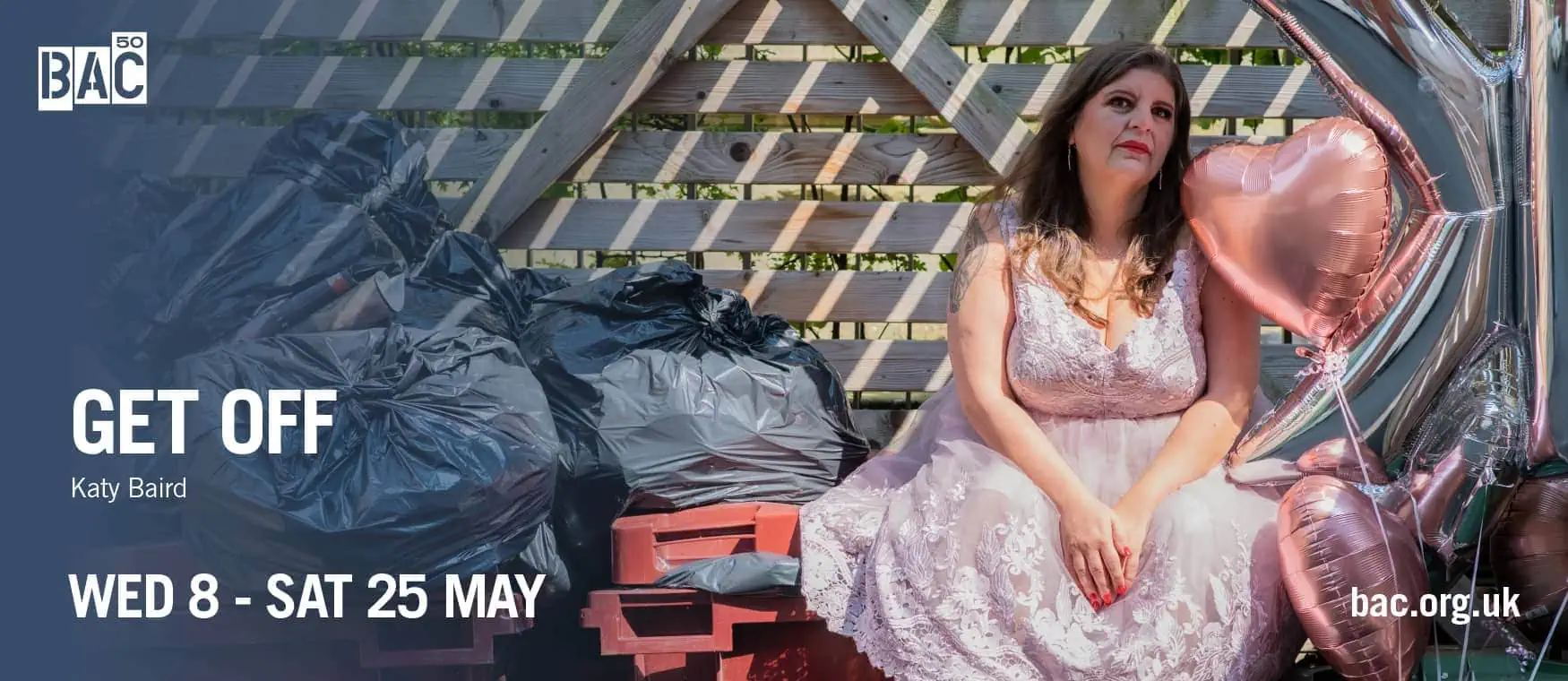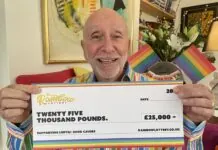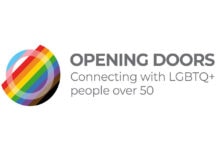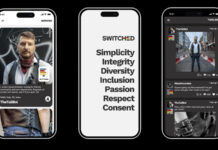Gay parenting was once a deeply contentious topic in the national press – ‘should a gay couple be allowed to bring up a child? Could they provide the same stability as a husband and wife?’ were some of the questions posed.
But now, other than in the persistent but increasingly ineffectual babblings of some ultra-conservative and religious groups, gay parenting is widely supported and it is easier than ever to become a father.
QX takes a closer look at some of the options available right now to enable a gay man’s dreams of parenthood come true, and what is the reality of being gay and bringing up a child in Britain 2011?
Pride Angel in Islington is a London-based clinic specialising in sperm donation and matching potential donors with couples or bringing co-parents together through the magic medium of the omniscient Internet. Aimed primarily towards the LGBT community, one signs up to their website as a sperm/egg donor, male/female co-parent or recipient for eggs/sperm.
Kind of like a fertility Facebook, once you’ve filled out your profile, a Spanish Inquisition-type Health Questionnaire (look out drug users and glasses wearers – lie now, or forever hold your peace) and added a picture of yourself (no one wants an ugly child, do they?) you can browse through the melting pot of hormonal body fluids on offer hoping to achieve a new symbiosis of genes to call their own. Or partly their own, depending on their preference.
What is really interesting about this service is that recently the agency has reported that a demand is not being met specifically for gay sperm donors. In a study of their database – over 8,500 profiles – 64% are women looking for sperm donors, with only 16% of members registered as sperm donors.
Of members wishing to meet a suitable sperm donor, 51% are looking for a gay single man and another 31% for donation from a gay couple. Co-founder of Pride Angel Erika says a reason may be that women “feel that gay men are more sensitive or caring, or easier to co-parent with. We would really like to see far more gay men coming forward to donate sperm”.
So the option is out there, guys – there appear to be many single women and lesbian couples just aching for your genetics to meet theirs. However, the Health Questionnaire, whilst seemingly slightly draconian, is exhaustive for a reason – if women are taking unknown sperm donors from a profile on a website then they want the best they can get.

Of course, there’s no requirement that you have to agree to any of these measures, but the presumption is that the more open you appear and willing to go with a recipient’s screening demands the more likely you are to be chosen as a donor.
Also, it is worth definitively asking yourself why you want to become a donor before you sign up to the website. I obviously signed up to research this feature, yet when my message from Gil & Cerise came through, a recently married lesbian couple, they were looking for a donor who is ‘happy to be unknown or have a little contact, would obviously need discussion’.
This threw me a little as I assumed that the reason for using Pride Angel, rather than a ‘regular’ anonymous donor bank, would be to take advantage of the fact that you can have some contact with your child, even if it does fall short of full co-parenting. Would I want to know that Gil & Cerise had a child using my sperm and I had no contact or say in its upbringing? I would say not for me.
But then if you just want to use the service to live happy with the fact that your immaculate genes have entered into the wider pool of the outside world and are not going to perish with your perfect person, then perhaps this is the option for you. One wank into a cup and you theoretically never have to think about it again, other than smugly considering the fact that you got a child into the world without even having to enter a vagina first!
That is, unless you use an agency other than Pride Angel, or that is not a clinic licensed with the Human Fertilisation and Embryology Authority – because then you are not legally protected. Under the current law, sperm donors operating through any HFEA covered clinic are legally free of any responsibility regarding the child, regardless of however much contact they’ve committed to keeping.
So, if you change your mind and bugger off after the baby is born, nobody is going to be able to legally track you down and demand money, unless you’ve signed a separate legal agreement with the recipient. However, Nick Spears the Press Officer of HFEA says that, “for people using unlicensed services or private arrangements there are also serious implications regarding who is legally the father… where the arrangement occurs outside a licensed clinic the man’s status and liability as a parent cannot be waived.”
Obviously the situation is different for donors signing up to be full co-parents, which come with the relevant legal responsibilities.
What other options are available to prospective gay parents other than sperm donation and clinics? The immediate suggestion is adoption and anyone interested in this should read our interview with Andy Leary-May, director of New Family Social, a charity for LGBT adoption, see box out. Agencies are crying out for new parents, and gay male couples can offer some of the most stable homes.
Perhaps some of the best bets for gay couples tentatively considering taking the leap into parenthood and wanting to look at all the options available to them is to attend a show/exhibition regarding this subject. On Saturday 17th September the Alternative Families Show opens at the Grand Connaught Rooms in London, which promises to provide all the facts in one place on same sex parenting, plus presentations from top industry representatives, and scheduled seminars on many subjects affecting this issue.
“One wank into a cup and you theoretically never have to think about it again”
After this in 2012, there is the LGBT Adoption and Fostering Week from the 20th to the 26th featuring invaluable advice of what it means to be an LGBT adoptive parent right now, and the highs and lows you may experience along the way, including talks with current adoptive/foster parents.
Ultimately, I’d imagine that even now one of the issues most off-putting to prospective gay parents would be the issue of homophobia, either directed against themselves or their children – schools are almost certainly the social institutions where this vice is still most virulent.
However, what is most refreshing from researching this article and the interviews I’ve conducted with gay parents is that this is the last of their concerns, focusing instead on the trials, tribulations and general amazing time of bringing up a child for themselves.
And, it is only by challenging given perspectives, prejudices and stereotypes that we will get anywhere: bring on the influx of gay families. A child needs a mother and a father combination nothing so much as it requires simple love, care and protection.
www.prideangel.org, www.hfea.gov.uk, www.newfamilysocial.co.uk, www.alternativefamiliesshow.com (Saturday 17th Sep, 10am-5pm. Tickets £8 online, £12 on the door. Grand Connaught Rooms, 61-65 Great Queen Street, Covent Garden, WC2B 5BZ), www.gayadoptionweek.org.uk(20th – 26th February, around the UK)
ANDY LEARY-MAY
Andy Leary-May is the Director of ‘New Family Social’, the UK charity for LGBT adopters, foster carers and their children, and also an adoptive father himself.
Why did you decide to become an adoptive parent?
That’s always a hard question… why does anyone have kids? For me, it felt like something was missing in life. I wanted to leave something behind, and creating a family just felt right.
Do you have a partner?
Yes, we’ve been together for 15 years. It didn’t take much discussion to be honest – we both wanted a family, and didn’t like any of the options other than adoption.
Did you find any stigma against you from adoption agencies as a gay male?
It was fine for us. Prejudice does still exist, but is dropping away as agencies realise what good parents we make!
What exactly is the adoption process?
In reality, there are more children than there are new parents for them, and agencies are crying out for more adopters. It took us around two years in total.
What age was your child when he entered into your life?
Our son was eighteen months when he came to live with us – I can’t talk about the day we met him without welling up! LGBT people who want younger children are being placed with younger children. That said, many LGBT people aren’t fussed which is great, as there are many, many more older children who struggle to find homes.
Are you out to your child?
Although he’s not yet four, our son not only understands his family, but will confidently explain it to his friends: ‘I’ve got a birth mum and birth dad, but they couldn’t look after me. You’ve got a mum and a dad, but I’ve got a dad and a daddy.’ He also knows lots of other children adopted by LGBT parents, so it’s nothing unusual for him.
Would you plan on adopting more children?
We have just started the process to adopt number two. To any potential adoptive fathers I’d say settle in for an emotional journey, expect the unexpected, and make sure you get to know others in the same situation.
Finally, what are the best parts of parenthood so far for you?
Simply the joy of watching our son grow up, and sharing in his enjoyment of everything.
ANNA, CHARLIE, JEREMY & MATT
Matthew Saville is Head of TAS Resource Management at Ernst & Young, and became a co-parent through sperm donation with his friend Anna.
What made you decide to become a parent?
For me, becoming a parent only came as a result of a direct question from a friend. Prior to that I didn’t think I’d be in a position where having children would be a possibility. Once Anna, my son’s mother, asked the question I began considering the many pros and some cons in becoming a parent.
How big was the decision? Did it require a lot of thought?
First in my mind was how to create a family/parenting unit that provided my child a loving, nurturing and consistent environment; then it was how to make it work in terms of geography (Charlie lives in Australia); against this was the backdrop of my relationship as I’d been with my partner for five years; and finally, how would Charlie fit in with my family.
Have you experienced any kind of prejudice from other parents?
None. But, in many respects I’m isolated from the possibility of prejudice. As Charlie lives in Australia, I don’t have challenges around other kids coming for sleepovers or other parents at the school gates.
What kind of hazards would you advise potential gay parents to avoid?
The main challenge would be access and trust. Charlie’s mother is a close friend, we regularly see each other and she either comes to stay with me and my partner in London, whilst my partner and I usually head to Australia for four weeks a year. Regarding trust, it’s about what you create, as friends Anna and I respect each other and therefore trust each other. That ultimately ensures our relationship works and provides Charlie the best situation with which to have a relationship with me.
Are you out with your sexuality to your child?
Yes – it’s what he’s always known. He’s grown up ‘used’ to the situation and that won’t change.
What are the best and most enchanting aspects of parenthood?
Having the opportunity to love and nurture someone. To provide a constancy in their life that will enable them to personally grow and emotionally develop. And to wonder, from who’s side of the family, does that bad habit come from!










